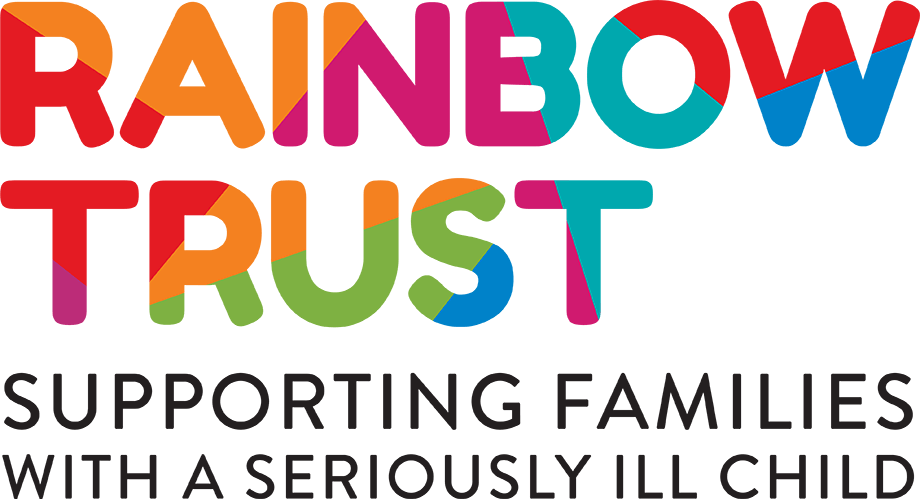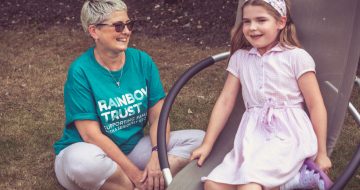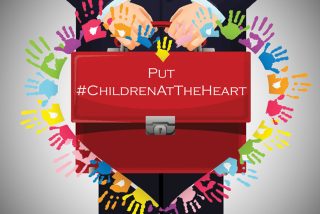Date published: 20 December 2018 by Anna Jackson
Brothers and sisters of seriously ill children risk being left with a long-term negative impact on their mental health and education unless there is more funding to support them, a report published by Rainbow Trust Children’s Charity, launched on BBC Breakfast on Thursday 20 December, warns.
The report, See us, Hear us, Notice us: The case for supporting siblings of seriously ill children, illustrates that demand for sibling support is increasing, and the mental health and educational attainment of brothers and sisters of seriously ill children can be affected by their situation. It calls on statutory authorities to recognise the value of sibling support and to fund it.
The report includes testimonials from brothers and sisters supported by Rainbow Trust and data from children’s hospices surveyed about the increasing need for sibling support. It is also endorsed by Professor Myra Bluebond-Langner, Chair in Palliative Care for Children and Young People at the Louis Dundas Centre for Children’s Palliative Care, Great Ormond Street Hospital/UCL Institute of Child Health.
Professor Bluebond-Langner said:
‘I warmly welcome this report which illustrates how brothers and sisters can be affected when a child is seriously ill. Parents know all too well that there is a deep and enduring impact on siblings, but sibling support has been overlooked by policy makers for many years. This report is a timely reminder that children’s palliative care needs to adopt a whole family approach.’
Report author Sophie Dodgeon, Policy and Campaigns Manager at Rainbow Trust, said early intervention was key.
“A child’s life changes dramatically when their brother or sister is diagnosed with a serious illness,” she said.
“Siblings of seriously ill children tell us that feelings of anxiety, isolation, jealousy and guilt are common. Some families believe their child would have needed professional mental health support without our help.
“Government research found that every extra school day missed was associated with a lower attainment for pupils reaching the end of primary and secondary school. We know that school attendance can be severely affected when children struggle to get to school when their parents are focussed on caring for their sick brother or sister or need to accompany them to urgent appointments or treatment.”
Parents report feeling immensely guilty that they cannot give the time and attention that they know the well siblings need when the parent is focussed on a brother or sister with a life threatening or terminal condition.
Clare, mother to Adam, who is now in remission from cancer, said:
“At any other time, if we, as a family, were met with this level of trauma we would be there for our kids. The nature of sudden, life threatening illness in children means that we [parents] cannot practically be there for all of them.”
Rainbow Trust supports families caring for a seriously ill child at home, in hospital and in the community, wherever they are needed. In 2017-2018, it saw a 12% increase in the number of new families it supported.
More than 70% of children’s hospices, who responded to a 2018 Rainbow Trust survey of sibling support in England, said the demand for sibling support has increased over the last three years but only a third said that they can ‘always’ meet demand.
Last year, the charity helped more than 1,230 siblings in various ways including staying with them while parents take a much-needed rest; taking them to nursery and school; talking to them about their brother or sister’s diagnosis; taking them on breaks or trips for some precious time out of their home and spending time with bereaved siblings to help them cope if their brother or sister has died.
Rainbow Trust calculates that its current sibling support could be saving around £418,000 for the health, education and social care system each year. It argues that such services are a worthwhile investment to avoid preventable costs to society in future
The report recommends that:
1. The Department for Health and Social Care and the Department for Education:
- Highlight the need for sibling support to Clinical Commissioning Groups and Local Authorities.
- Champion the introduction of an early intervention fund in line with proposals from the Disabled Children’s Partnership
- Help schools play a greater role in identifying and supporting siblings of seriously ill children.
2. Ensure local healthcare commissioners implement clear mental health support and crisis pathways for siblings if their needs escalate.
Rainbow Trust estimates that at least 32,000 families in England have a seriously ill child with one or more siblings, but it is likely that many are not receiving support. With medical advances enabling more seriously ill babies to survive birth, and more children to live longer with their complex conditions, more children will be growing up with a seriously ill brother or sister. But, despite some official recognition of the need to support siblings, many local authorities have reduced the funding available as budgets are squeezed.
Sophie said:
“Sibling support from organisations like Rainbow Trust can be crucial for children in this situation. Brothers and sisters can learn important coping mechanisms and find an outlet for their strong feelings and worries. Practical support can make sure they attend school regularly and keep up with their homework. They can also build a support network for themselves outside the home.”
“We know sibling support is undervalued by national decision makers, even though it can prevent avoidable future costs for public services,” Sophie said. “Rainbow Trust calls for children and young people in all parts of England to have access to high quality sibling support, as and when required, before their education, mental health or wellbeing, is more seriously affected.
Click here to read the full report or the executive summary and support our call to for all children and young people with seriously ill brothers or sisters to have access to high quality sibling support when required.



